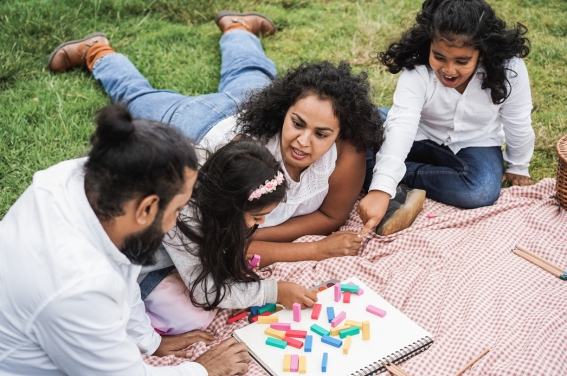Blog » Navigating Family Relationships in Times of Loss

Grief, though a deeply personal journey, rarely occurs in isolation. When a family loses someone they love, the emotional and logistical challenges can strain even the closest bonds. Compassion and clear communication are essential to addressing these complexities while honoring your loved one’s memory. In times like these, understanding how to support one another and navigate decisions—like cremation services or memorial planning—can make all the difference. By fostering connection and minimizing misunderstandings, families can work together to find healing and closure during one of life’s most difficult transitions.
The Impact of Grief on Family Dynamics
Grief alters family dynamics in profound ways. Each person experiences it differently, and this variation can lead to unexpected challenges. Some members may take on leadership roles during the mourning period, while others withdraw to process their emotions privately. These shifts can affect relationships within the family.
Grief often magnifies pre-existing tensions or creates new ones, which might include:
- Struggles over decision-making, especially concerning end-of-life arrangements.
- Misinterpretation of behaviors, like seeing withdrawal as indifference.
- Changes in how family members interact day-to-day.
By recognizing these shifts, families can address their challenges with empathy rather than frustration. Moving forward requires intentional actions, such as acknowledging each other's perspectives and respecting their unique grief processes.
Common Conflicts and Misunderstandings
During times of loss, families may encounter disagreements rooted in heightened emotions. These conflicts can revolve around logistics, such as choosing between cremation and burial, or emotional differences, like preferred ways to grieve.
Some common sources of misunderstanding include:
- Disputes over how to distribute responsibilities for memorial planning.
- Differing opinions about cultural or religious funeral practices.
- Difficulty agreeing on financial matters related to the loved one’s passing.
To navigate these issues, consider setting aside time for open discussions. Use clear language, avoid blaming others, and focus on shared goals. Remember, agreeing on even small details can build momentum toward resolving larger disagreements.
Strategies for Healthy Communication
Effective communication lies at the heart of overcoming grief-related challenges. Families facing loss often struggle because emotions cloud their ability to express themselves clearly. Thankfully, several strategies can promote better communication:
- Be patient and empathetic: Understand that grief influences everyone differently, and approach conversations with kindness.
- Practice reflective listening: Paraphrase what others say to ensure you understand their perspective.
- Set aside emotions during decision-making: Address logistical concerns without letting emotional tensions dictate the discussion.
- Create a safe space for expression: Allow everyone to voice their feelings without fear of judgment.
Additionally, using visual aids like schedules or checklists can help families keep track of tasks and avoid unnecessary confusion. These steps enable smoother communication and help everyone focus on what truly matters—supporting each other.
Supporting Each Other Through Loss
Families grow stronger when they lean on each other during tough times. By working together, relatives can share the burden of grief and create a supportive environment where healing becomes possible. Support can take many forms, including:
- Practical assistance: Help manage funeral logistics, coordinate travel arrangements, or care for young children.
- Active presence: Sit together, even in silence, to convey solidarity.
- Validating emotions: Reassure loved ones that their grief responses are normal and accepted.
Creating shared moments of remembrance is another way to provide mutual support. Families can organize storytelling sessions or create tribute albums, giving everyone a chance to reflect and heal together.
The Role of Professional Services
Professional cremation and memorial services play a crucial role in reducing stress during emotional times. For families navigating complex decisions, these services provide practical solutions, freeing up space to focus on emotional well-being.
Cremation services, for example, offer flexibility in honoring a loved one’s memory, and they are often a more cost-effective alternative to traditional burials. Providers like Simple Cremation USA specialize in guiding families through the logistics with compassion and care. Services can include:
- Assistance with documentation and paperwork.
- Coordinating transportation for remains.
- Helping arrange personalized memorials or keepsakes.
By outsourcing some of these responsibilities, families gain the freedom to spend more time with each other and less time managing details.
Finding Closure Together
Grieving as a family requires effort and intentionality, but it ultimately leads to stronger connections. Healing together often starts with creating meaningful rituals to celebrate the life of the deceased. Rituals can serve as an anchor, providing structure and comfort in an otherwise turbulent time.
Some ways to find closure include:
- Planning a collaborative memorial service: Incorporate elements that represent your loved one’s values and personality.
- Creating a memory jar: Family members can write down cherished memories and revisit them during significant moments.
- Organizing a communal meal or gathering: Food and shared space can foster intimacy and connection.
By focusing on the love shared for the person who has passed, families can set aside conflicts and come together in a spirit of unity.
Conclusion
Losing a loved one is among life’s most difficult experiences, but it also presents an opportunity for families to come closer together. By addressing grief with open communication, showing mutual support, and seeking professional assistance when needed, families can navigate challenges more effectively. While the journey isn’t easy, it’s one that strengthens bonds, fosters healing, and honors the memory of the person who has passed. When families prioritize compassion and collaboration, they discover the resilience to face even the toughest times.
Recent Blog Posts
- Eco-Friendly Cremation and Burial Options
- Direct Cremation in South Carolina and Why Families Prefer This Option
- Choosing a Funeral Home in South Carolina for a Stress-Free Process
- Burial or Cremation in Louisiana and Which Option Fits Your Needs
- Funeral Costs in New Jersey and Affordable Cremation Solutions
- Cremation Services in Louisiana and What Families Should Know
- Virtual Storytelling Ideas to Connect Generations
- Honoring Loved Ones with Meaningful Legacy Tattoos
- Healing Through Comfort Foods From Around the World
- How to Support a Friend Through Grief from a Distance
